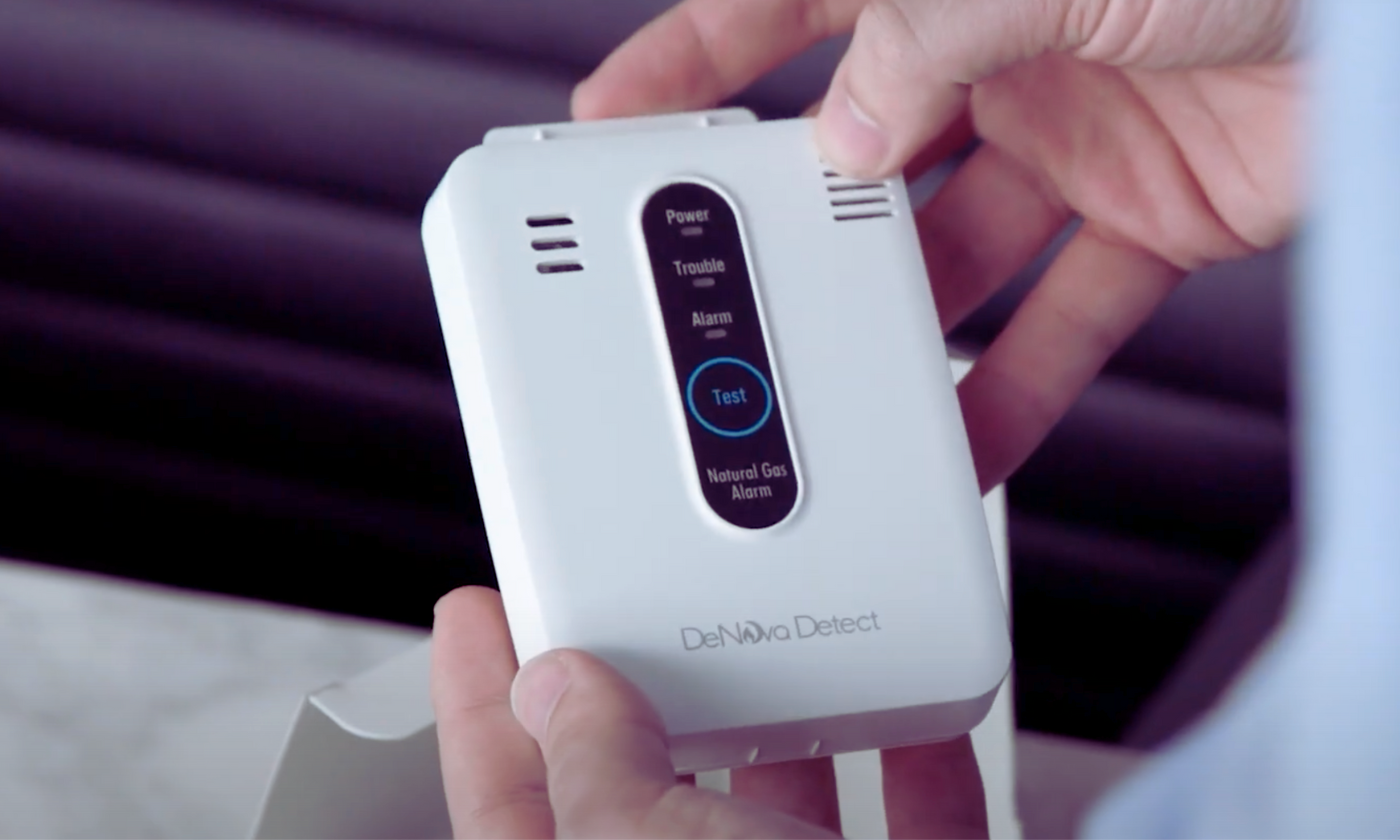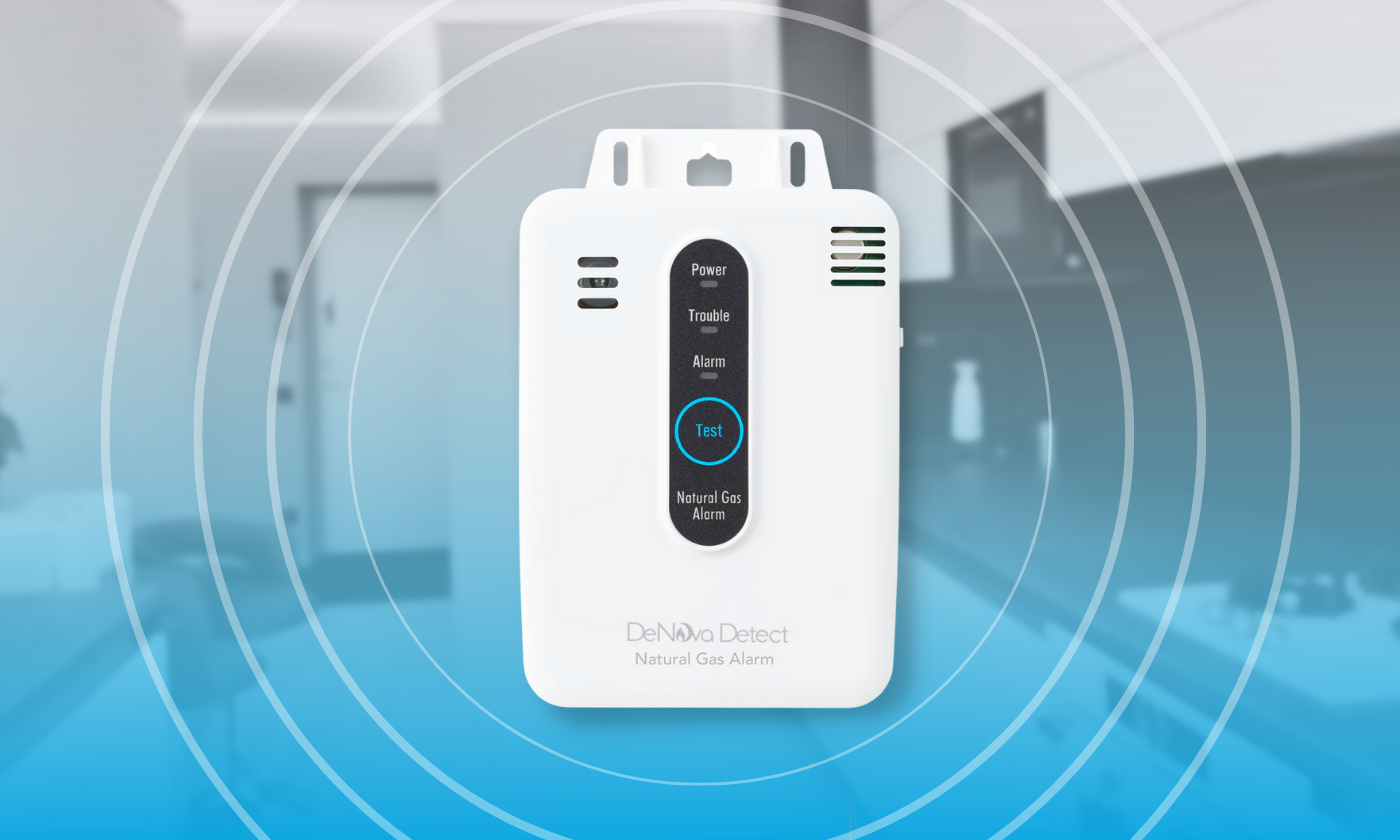Whether you’ve moved into a new home or have been residing at your current home for a while, a gas leak detector is a must.
The average American household has at least one major natural gas-powered appliance used daily—home heating, washing, and cooking appliances are among the most common utilities. However, the increase in gas appliances has not come with a rise in natural gas leak detectors, which are missing from almost every home. While it is a relatively safe energy source, under certain circumstances, such as improperly installed or poorly maintained gas lines, gas leaks can become major problems for your health and home.
What are the True Natural Gas Leak Risks?
Natural gas is a highly combustible fossil fuel predominately made up of methane and has seen an increase in use due to minimal emissions released when burned. Natural gas is considered to be among the safest fossil fuels and can be found deep below the earth all over the world. Even though this natural resource has become commonplace in many homes, its danger is not well-known or considered.
A natural gas leak occurs when a gas line or appliance springs a leak. The natural gas in the pipeline seeps out and leaks into open areas. Natural gas leaks are more likely to happen when old exposed gas lines begin to corrode. The outer material of the pipe wears away over time until small hairline fractures occur. Fortunately, utility companies use an additive called mercaptan to notify people of a problem. So that sulfur or rotten egg smell you notice? That could be a natural gas leak in your home.
The methane present in natural gas can cause a host of problems. And although natural gas is non-toxic, in certain conditions, natural gas leaks can result in:
- Dizziness or unconsciousness when high concentrations of natural gasses gather in confined spaces.
- Flammable mixtures exploding when exposed to open air.
- Dead vegetation, trees, and houseplants.
- Higher gas bills.
- Costly property damages.
But a natural gas detector can help you avoid any of these outcomes; it is essential to ensure your safety while keeping natural gas as a part of your daily routine.
Why a Natural Gas Leak Detector is a Must-Have
Natural gas is odorless and colorless, making it difficult to detect without using a natural gas detector. A gas leak can have deadly consequences, as it is highly flammable and can ignite with even the slightest spark. A reliable gas detector with high sensitivity can detect low levels of gas and alert you and whoever is around to the potential danger.
A natural gas detector in your home offers 24/7 monitoring for peace of mind and can detect dangerous gases in all areas, even if you have an area left unmanned most of the time. This can provide an early warning to advise family members of a dangerous atmosphere before entering.
Natural Gas Detector Features Every Homeowner Should Consider
There are numerous gas leak detectors and sensors on the market. When shopping around, purchasing the one that meets your specific needs is best. If you want to watch for carbon monoxide leaks, you need a CO detector, not a natural gas detector. Don’t assume that one gas alarm will detect another type of chemical, such as CO — unless it specifically says it will, it won’t. In fact, many two- or three-in-one detectors are misleading and can’t detect both accurately. For example, a two-in-one alarm that claims to detect propane and natural gas is misleading. Natural gas is detected near the ceiling because it’s lighter than air, and propane is heavier than air, so it's detected near the ground. A two-in-one product can’t function accurately in two places at once.
For the best natural gas detector, here are a few features to remember:
- Sensor Detection Level: The sensor is the most important part of the natural gas detector. Look for a detector with high-quality sensitivity to detect low gas levels. Gas alarms that detect Natural Gas at 10% LEL (Lower Explosion Limit) versus 25% LEL will provide residents 11 minutes more escape time on average.
- Sensor Type: New MEMS (micro-electromechanical sensors) virtually eliminate nuisance alarms.
- Alarm Warning: The alarm should be loud enough to alert you even if you’re sleeping. Consider a natural gas detector with a minimum of 85 decibels (dB).
- Power Source: Detectors can be powered by a battery pack, plug-in, or hardwired into your home's electrical system. Battery-powered gas detectors allow the gas alarm to be mounted 12 inches from the ceiling where natural gas accumulates. Plug-in alarms are mounted near the floor, and natural gas will take much longer to detect.
- Smart Features: Wi-Fi or Bluetooth connectivity or syncing with other smart home devices, such as Amazon Sidewalk. These features can provide you with real-time alerts and monitor your detector remotely.
- Test Button: Your detector should have a test button to periodically ensure the device works properly.
Why DeNova Detect
Gas leak detectors are very handy for finding leaks in natural gas pipes, fittings, and connectors. Although gas companies specifically introduce odorants to make the gas smell like rotten eggs, you may not be close enough to smell it right away.
DeNova Detect is the only residential battery-powered wireless natural gas alarm in the U.S. with a six-to-ten-year battery life—depending on the model. With superior patented MEMs sensor technology offering 600 times more power-saving energy, these natural gas detectors provide fast and accurate methane gas detection (10% LEL)—faster than any other natural gas detector on the market. When it comes to your safety, every second matters.
Our DeNova Detect natural gas alarms are designed to protect people and their property from the potentially dangerous impacts natural gas leaks can cause. Want to learn more about how our detectors can keep you safe, contact us at support@newcosmosusa.com.





Leave a comment
This site is protected by hCaptcha and the hCaptcha Privacy Policy and Terms of Service apply.